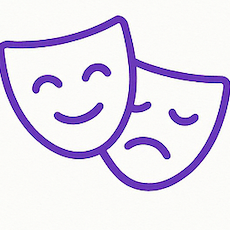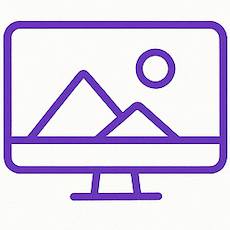What is playful learning?
In the context of this project, we see playful learning as an umbrella term for a broad range of pedagogic approaches that use mechanics or elements of games, encourage or develop playfulness, or a combination of both. We have identified eight different broad types of playful learning in higher education that we will be using in our comparative analysis. These are:
 roleplay taking on alternate identities in fictional scenarios
roleplay taking on alternate identities in fictional scenarios simulations modelling the real world and experimenting with the model
simulations modelling the real world and experimenting with the model traditional play e.g. card games, board games, toys
traditional play e.g. card games, board games, toys digital worlds e.g. video games, virtual worlds
digital worlds e.g. video games, virtual worlds hybrid play e.g. alternate reality games, escape rooms
hybrid play e.g. alternate reality games, escape rooms gamification using game mechanics in non-game situations
gamification using game mechanics in non-game situations playfulness facilitating playful engagement through e.g. humour, playful design
playfulness facilitating playful engagement through e.g. humour, playful design  playmaking designing games or play experiences
playmaking designing games or play experiences
Isn’t playful learning only for children?
Absolutely not. People often make the assumption that play is silly, frivolous, or infantile but this isn’t the case. Play can be all of those things, but it doesn’t have to be, and we would suggest that those are aspects of play that are not appropriate in adult education. However, play can facilitate problem-solving, experimentation, the development of novel ideas, lateral thinking, and relationship-building. Most importantly, it provides spaces to learn from failure – something we all need to manage, at any age.
What is the difference between collaborating and partner institutions?
Collaborating institutions are involved in the core of the research and each have at least one Co-Investigator contributing time to the project. Each collaborating institution also has identified two colleagues who work in learning design or technology-enhanced learning (RE:PLAY Design Fellows) who will be developing a common playful learning design framework and researching its use, working with module leaders in their institutions (RE:PLAY Fellows) to redesign modules and evaluate the impacts. Collaborating institutions are: Anglia Ruskin University; Coventry University; Durham University; Northumbria University; University of Sussex; University of the Arts, London.
Partner institutions are carrying out surveys with staff and students at the start and end of the project, and act as a barometer for attitudes towards playful learning in the sector. Partner institutions are: City St George’s, University of London; Teesside University; University of Edinburgh; University of Exeter; University of Greater Manchester; University of the Highlands and Islands.
Can I get involved in the project?
There are lots of opportunities for people to get involved.
- We are currently recruiting RE:PLAY fellows in each of our collaborating institutions (see local calls or get in touch via the contact page).
- If you’re a university teacher using playful learning already, we will actively be recruiting case studies soon – subscribe to our blog to be notified when we put out calls for RE:PLAY Innovation Fellows in specific disciplines or using particular types of playful learning. If you aren’t able to be a Fellow (we only have a limited number of spaces – sorry!) we’d still love people to write up what they are doing as case studies that we can share on the Playful Learning Association web site (template will be available soon).
- If you’re already working as a researcher, designer, or academic developer in this area we’d love to learn from what you’ve already done and share your work more widely. Please get in touch via the contact page.
- If you want to redesign a course using our approach but are not able to be a RE:PLAY Fellow we will make all resources freely available, including a Learning Design Toolkit in Autumn 2025. We’d love as many people as possible to test it, give us feedback, and share their experiences.
- If you want to carry out your own research into your redesign or other playful learning activities, we will be sharing our research instruments and protocols and a dissemination template. The Journal of Play in Adulthood will also be encouraging and supporting publication of research in this area.
If you’re interested in using playful learning we will be making all tools, resources, data, and outputs from the project openly available as it progresses. If you’re just interesting in keeping in touch, sharing your ideas or giving us some feedback, please follow our blog, or drop us a line directly on our contact page. If you’re interesting in joining a community with an interest in playful learning in higher education, please join the Playful Learning Association (it’s free).